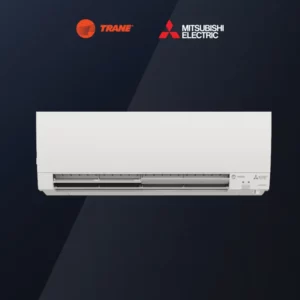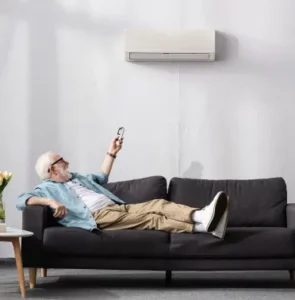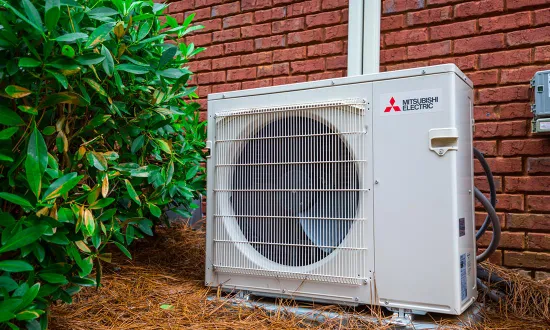The term “heat pump” might suggest it’s only for heating, but this versatile HVAC system is also your go-to for summer cooling. While air conditioners are commonly associated with beating the heat, heat pumps can efficiently manage your indoor climate by providing both cooling and heating.
So how does a heat pump work? Discover the mechanics behind how a heat pump operates during the warmer months in our detailed blog below.
How Does A Heat Pump Work?
What is a Heat Pump?
Before we dive into the question how does a heat pump work, we need to understand what a heat pump is. A heat pump is a type of HVAC system that transfers air between inside and outside spaces to generate cooling and heating effects.
There are several reasons why many choose heat pumps over other cooling systems. Besides being a 2-in-1 system, it also costs less to operate due to its energy-efficient features, making it environmentally friendly. Moreover, there are potential government tax incentives as a reward for contributing to a better environment.
Learn more about why a heat pump is a good investment by reading our blog here.
 Why Your Pittsburgh Home Needs a Heat Pump
Why Your Pittsburgh Home Needs a Heat Pump
A heat pump is a suitable option for Pittsburgh homes for several reasons:
Functionality: the 2-in-1 capabilities of heat pumps are suitable for the city’s temperature, encompassing cold winters and warm summers. Having both cooling and heating capabilities under one system is not only practical but also space-saving.
Comfort: Heat pumps can maintain a steady indoor temperature, which is crucial, particularly during the city’s chilly winters and sweltering summers. Achieving and maintaining your desired indoor temperature becomes the must-have comfort during extreme weather.
Energy-saving capabilities: The heat pump’s operational characteristics help save energy and cut costs. This aspect is especially beneficial when you need to continuously use your HVAC at home, such as during the summer.
 How Does A Heat Pump Work In The Summer
How Does A Heat Pump Work In The Summer
Unlike traditional HVAC systems, which generate heat and cold air, heat pumps extract heat using refrigerant from one place and release it to another. So, in summer, heat pumps draw warmth from indoors and remove it outdoors, leading to a cooler indoor environment.
A typical heat pump unit comprises two main components: the indoor unit with the evaporator coil and the outdoor unit housing the condenser coil. The refrigerant flows through these coils, taking in and emitting heat between the interior and exterior of the home, providing both heating and cooling functionalities.
Install Your Heat Pump with Johnson’s
At Johnson’s, we’ve got a team of professionals with extensive experience who possess unparalleled knowledge of heat pumps. Beyond expertise, opting for our services guarantees transparent pricing, honest recommendations, and top-quality work, all designed to ensure your complete customer satisfaction.
This means that we work with top-quality brands like Trane and Mitsubishi to provide you with a heat pump that will keep your home comfortable beyond the summer months. The Trane heat pump products have numerous models with varying noise levels, efficiencies, and systems. The Mitsubishi models are well-known for their comfortability, efficiency, and room-by-room preferences.
Click here to explore more reasons to choose us for your next HVAC project.
End Note
If you’re looking for a reliable and cost-effective system for your Pittsburgh home, look no further. A heat pump is a perfect choice! With a 2-in-1 setup, you’ll have one of the most functional, economical, and effective HVAC systems. So whether battling the summer heat or combating winter’s chill, a heat pump has you fully covered.
Feel free to contact us for further information and assistance concerning heating, cooling, and plumbing services!


Recent Comments